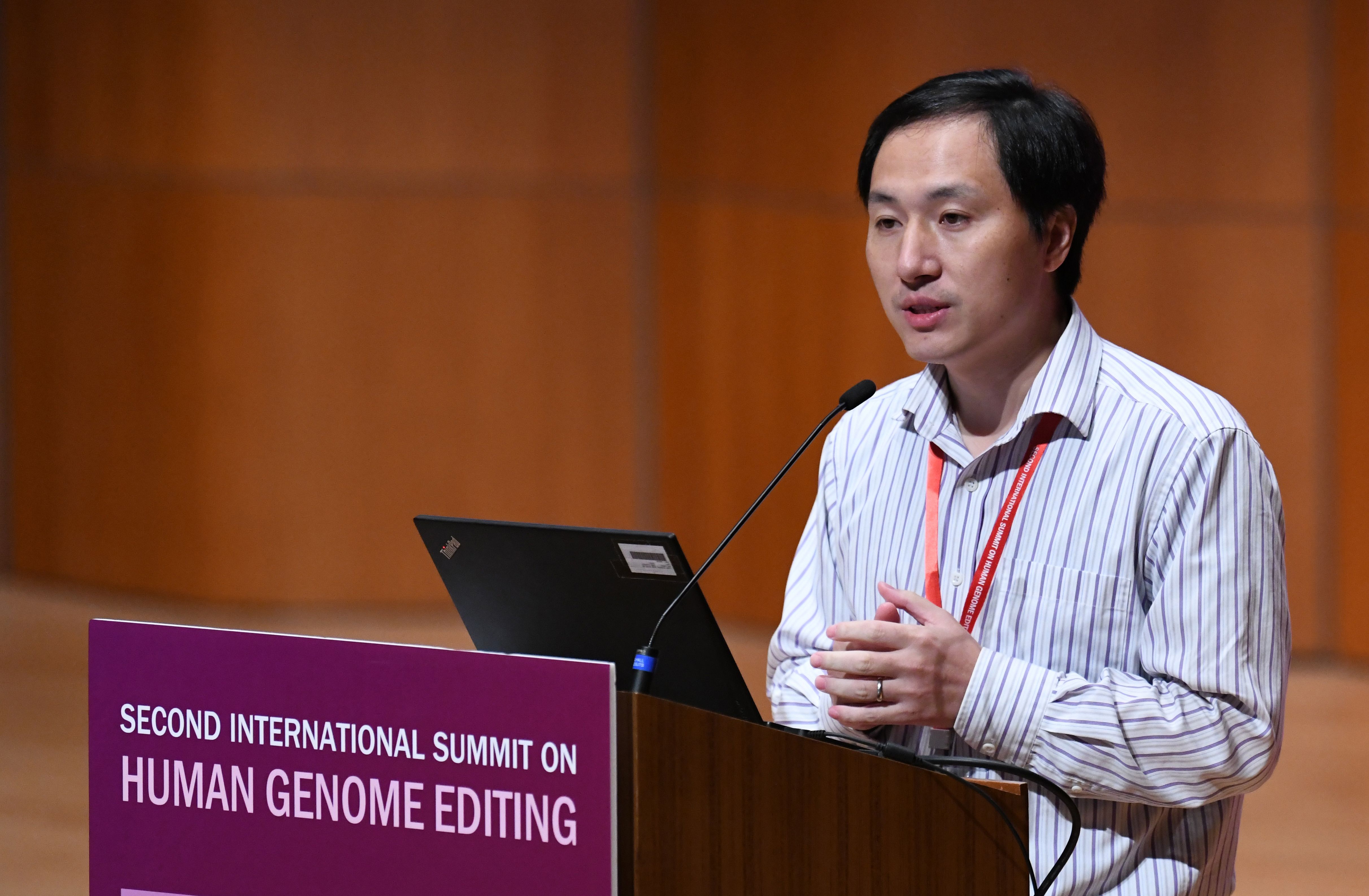Chinese 'CRISPR babies' may be at risk of premature death

A free daily email with the biggest news stories of the day – and the best features from TheWeek.com
You are now subscribed
Your newsletter sign-up was successful
The world's first genetically-modified babies, a pair of twin girls born last fall in China, may have some health risks that we didn't know about.
The babies were grown from a genetically-edited embryo using the CRISPR gene-editing technique. He Jiankui, the scientist behind the work, modified a gene called CCR5; the mutated version, CCR5-∆32, is known to make it less likely for people to get the AIDS virus. But there are also some other complications to CCR5-∆32 — people with the mutation may be "more vulnerable to the West Nile and influenza viruses," NPR reported.
And a new study, published on Monday in Nature Medicine, has found that these risks might outweigh the rewards of the CCR5-∆32 mutation. In order to conduct the study, researchers used data in the U.K. Biobank, a resource that gathers genetic information and health records from people of British ancestry. From this database, the researchers analyzed over 400,000 people who had the mutated gene in question, and they found some troubling results.
The Week
Escape your echo chamber. Get the facts behind the news, plus analysis from multiple perspectives.

Sign up for The Week's Free Newsletters
From our morning news briefing to a weekly Good News Newsletter, get the best of The Week delivered directly to your inbox.
From our morning news briefing to a weekly Good News Newsletter, get the best of The Week delivered directly to your inbox.
Overall, people with CCR5-∆32 were about 21 percent less likely to live to the age of 76, the study found. While it isn't clear exactly what is responsible for such an increased mortality rate, the team of scientists hypothesize that it may have to do with the increased vulnerability to the flu in particular.
"We were quite surprised the effect was this large," said Rasmus Nielsen, the study's lead author. But precisely because the results of genetic modifications aren't yet known, "we should not make CRISPR babies at this stage," Nielsen said. The many ramifications of the altered genes are just too unpredictable.
While He Jiankui may have been trying to address the spread of HIV in China, scientists are quick to caution against any further experimentation before the effects of genetic modification are properly studied. Read more at NPR.
A free daily email with the biggest news stories of the day – and the best features from TheWeek.com
Shivani is the editorial assistant at TheWeek.com and has previously written for StreetEasy and Mic.com. A graduate of the physics and journalism departments at NYU, Shivani currently lives in Brooklyn and spends free time cooking, watching TV, and taking too many selfies.